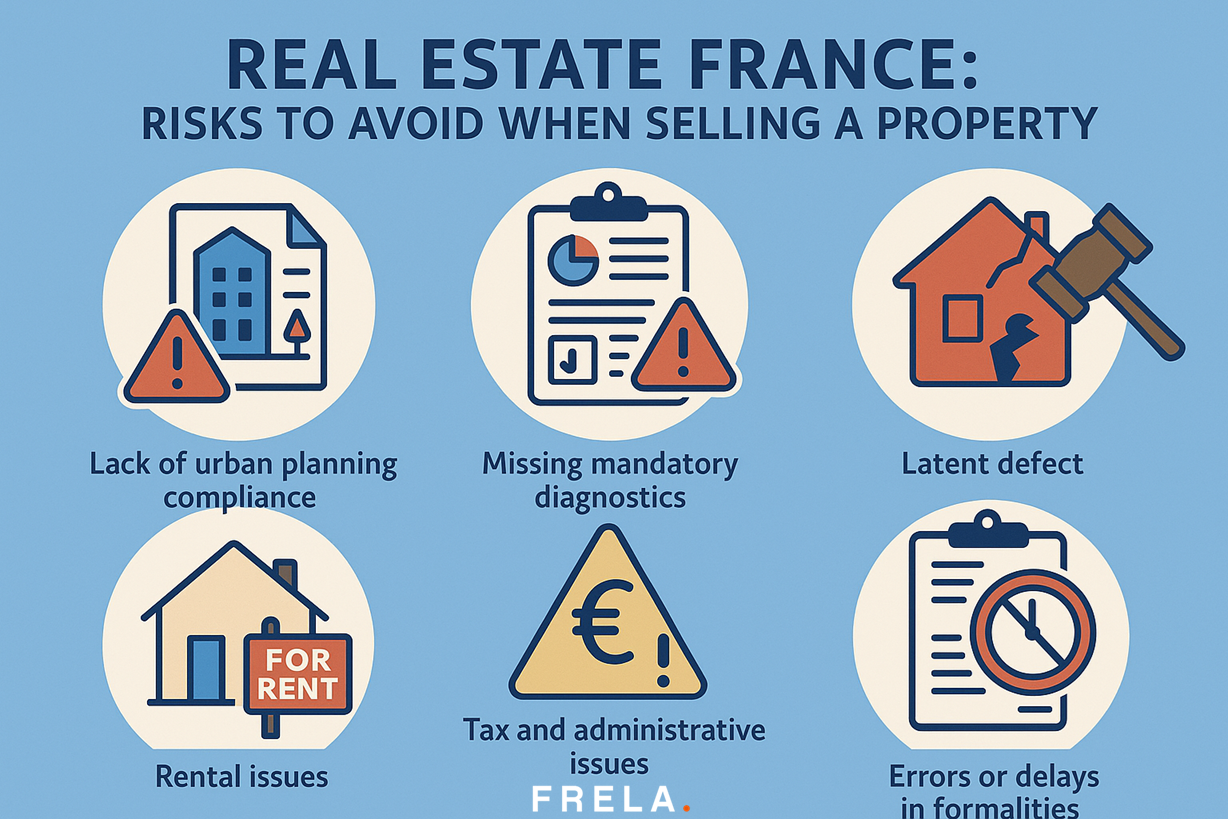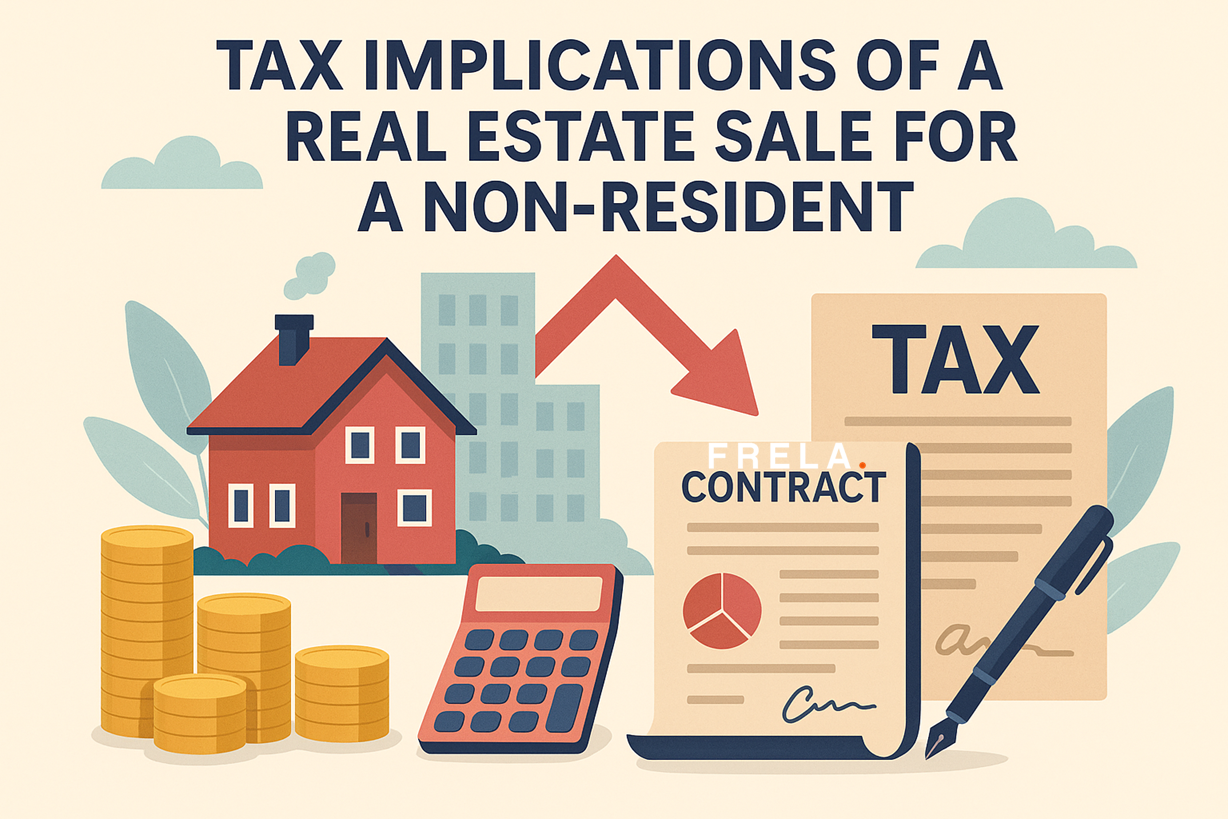Implications of taxes and capital gains tax
When buying or selling a property in France, it is important to understand the different taxes and levies that need to be paid. These costs can vary depending on the geographical location and value of the property.


Taxes included in notary fees
When purchasing a property in France, it is necessary to pay notary fees. These fees are paid to the notary when signing the deed of sale and represent a tax on the sale of real estate. Specifically, the land registry tax is a tax paid to the Treasury when signing the deed of sale and is intended to finance the expenses of the State, local authorities, and municipalities. The amount of these fees varies depending on the value of the property and its geographical location.
Property tax
Property tax is an annual tax that property owners in France must pay. It is generally calculated based on the cadastral rental value of the property. This amount is set by the municipality where the property is located and can vary from one municipality to another.
Housing tax
The housing tax is a local tax collected for the benefit of local authorities. Its amount varies depending on the municipality where the property is located, and its tax rate is determined by local authorities. The housing tax also depends on the characteristics of the taxable property, such as size or level of comfort, as well as the personal situation of the occupant as of January 1st of the tax year, including income and household composition. Whether you are an owner, tenant, or occupant of a property, you may be liable for housing tax for your main residence or second home.
Real estate wealth tax
If you have a significant real estate wealth, you may be subject to the real estate wealth tax (IFI) if the net value of your wealth exceeds €1,300,000. This value includes all the real estate and property rights that you directly or indirectly own as of January 1st of the tax year. There are partial or total exemptions for certain properties, and certain debts can be deducted from the value of your wealth before taxation.
Income tax
Even if you reside abroad, if you receive income from France, such as rent, you must declare it and file a tax return in France. There is no minimum threshold for reporting, all income must be reported, even if it is not taxable. Your tax will be calculated progressively based on the level of your income and the composition of your household. Non-residents are taxed at a flat rate of approximately 20% or 30% on their taxable net income in France. The income tax return is filed from April and the tax notice is received at the end of the summer of the current year.
3% tax for legal entities
The tax on the venal value of properties owned in France, directly or indirectly, by any French or foreign legal entity, whether or not it has legal personality, is provided for in Articles 990 D to 990 G of the French General Tax Code (CGI). This tax is equal to 3% of the venal value of real estate assets owned in France as of January 1st of the tax year and includes several possible exemptions. However, some entities are exempt from this tax.
Capital gains tax
If you own a property and wish to sell it, you must take into account the difference between the sale price and the acquisition price of the property. If this difference is positive, it means that you have made a capital gain. Real estate capital gains are subject to two types of taxes: income tax and social contributions.
However, there is an exception to this rule. If you sell your main residence and its outbuildings (cellar, garage, parking space, courtyard, etc.), you are totally exempt from capital gains tax. To be considered a main residence, the property must be your usual and effective residence, i.e., the one you occupy for the majority of the year. Additionally, the property must be your main residence at the time of the sale. In case of separation or divorce, it is sufficient that one of the former spouses (married, PACSed or cohabiting) occupied the property until its sale for the sale to benefit from the exemption on real estate capital gains tax. It is important to note that this exemption applies only to the main residence and not to rental or investment properties.
There are several exemptions from real estate capital gains tax depending on the characteristics of the property sold and the situation of the seller or buyer. Firstly, if you sell a property other than your main residence, you may be exempt if you use the sale price to buy or build your main residence within 2 years and if you have not been the owner of your main residence in the 4 years preceding the sale. Moreover, regardless of the nature of the property, you are exempt from real estate capital gains tax for any property held for more than 22 years.
Regarding the seller‘s situation, he or she can also benefit from an exemption. Finally, it is possible to benefit from an exemption if the property is sold by an individual who has exercised his or her right of abandonment.
The capital gain is reduced by an abatement, i.e., a flat or proportional reduction applied on the basis of calculation of a tax (income, value of a property, etc.) which depends on the time during which you have owned the property.
You can consult the table of abatement rates on the French government’s website:
In summary, buying or selling a property in France involves paying several taxes. Notary fees, property tax, housing tax, real estate wealth tax, 3% tax for legal entities, and capital gains tax are the main taxes to be paid when buying or selling real estate in France. It is important to understand these costs and to choose a competent and reliable lawyer to ensure a successful real estate transaction.
About the Author :
Business lawyers, bilingual, specialized in acquisition law; Benoit Lafourcade is co-founder of Delcade lawyers & solicitors and founder of FRELA; registered as agents in personal and professional real estate transactions. Member of AAMTI (main association of French lawyers and agents).
FRELA : French Real Estate Lawyer Agency, specializing in acquisition law to secure real estate and business transactions in France.
Paris, 19 Rue du Colisee, 75008 Paris
Bordeaux, 78 Cours de Verdun, 33000 Bordeaux
Lille, 40 Theater Square, 59800 Lille





